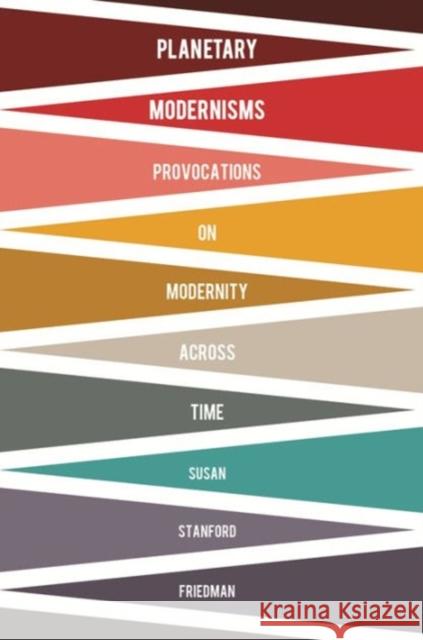Planetary Modernisms: Provocations on Modernity Across Time » książka
topmenu
Planetary Modernisms: Provocations on Modernity Across Time
ISBN-13: 9780231170901 / Angielski / Twarda / 2015 / 472 str.
Planetary Modernisms: Provocations on Modernity Across Time
ISBN-13: 9780231170901 / Angielski / Twarda / 2015 / 472 str.
cena 257,25
(netto: 245,00 VAT: 5%)
Najniższa cena z 30 dni: 254,10
(netto: 245,00 VAT: 5%)
Najniższa cena z 30 dni: 254,10
Termin realizacji zamówienia:
ok. 30 dni roboczych.
ok. 30 dni roboczych.
Darmowa dostawa!
Drawing on a vast archive of world history, anthropology, geography, cultural theory, postcolonial studies, gender studies, literature, and art, Susan Stanford Friedman recasts modernity as a networked, circulating, and recurrent phenomenon producing multiple aesthetic innovations across millennia. Considering cosmopolitan as well as nomadic and oceanic worlds, she radically revises the scope of modernist critique and opens the practice to more integrated study.
Friedman moves from large-scale instances of pre-1500 modernities, such as Tang Dynasty China and the Mongol Empire, to small-scale instances of modernisms, including the poetry of Du Fu and Kabir and Abbasid ceramic art. She maps the interconnected modernisms of the long twentieth century, pairing Joseph Conrad with Tayeb Salih, E. M. Forster with Arundhati Roy, Virginia Woolf with the Tagores, and Aime Cesaire with Theresa Hak Kyung Cha. She reads postcolonial works from Sudan and India and engages with the idea of Negritude. Rejecting the modernist concepts of marginality, othering, and major/minor, Friedman instead favors rupture, mobility, speed, networks, and divergence, elevating the agencies and creative capacities of all cultures not only in the past and present but also in the century to come.










